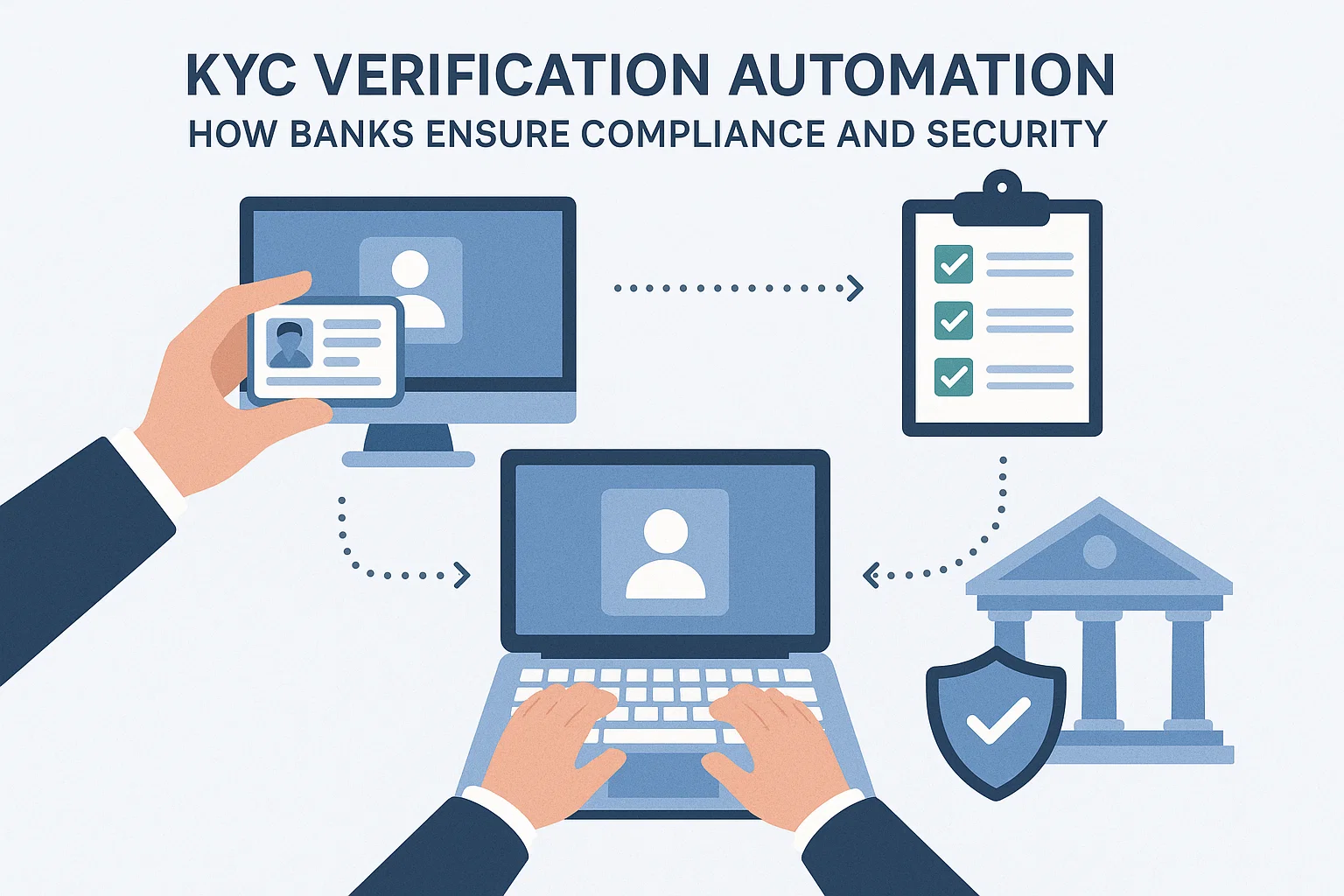Introduction
Financial institutions operate in a highly regulated environment where
Know Your Customer (KYC) compliance is mandatory. KYC verification involves validating the identity and authenticity of customers before providing services like bank accounts, loans, and investments. Traditionally, this process required manual checks of physical documents, which was slow, error-prone, and expensive.

Today,
KYC verification automation, powered by
AI document processing services, has transformed this landscape. By using
intelligent OCR software, machine learning, and advanced validation algorithms, banks can
verify customer identities in real-time, reducing onboarding delays and improving security.
What Is KYC Verification Automation?
KYC verification automation is the process of digitizing and automating identity verification using AI. Instead of manually reviewing identity proofs and address documents, automated KYC solutions extract data, validate authenticity, and check compliance using regulatory databases. This process is essential for:
Why Automate KYC Verification?
Manual KYC verification leads to several challenges:
- Slow Onboarding – Manual checks can take days or weeks.
- Compliance Risks – Missing or incorrect data can lead to regulatory penalties.
- High Costs – Banks spend millions annually on manual KYC processing.
By implementing
KYC verification automation, financial institutions can:
✔
Reduce Processing Time – Complete verification in minutes instead of days.
✔
Ensure Accuracy – AI eliminates errors in data entry and validation.
✔
Enhance Security – Prevent fraud with real-time checks against watchlists.
✔
Improve Customer Experience – Faster onboarding improves satisfaction.
How KYC Verification Automation Works
Here’s how automated KYC verification is implemented:
- Document Upload Customers upload ID proofs, address documents, and financial statements via mobile apps or portals.
- AI-Powered Data Extraction Intelligent OCR software extracts details such as name, date of birth, address, and document number from identity proofs.
- Validation and Compliance Checks AI cross-checks extracted data with regulatory databases (AML, sanction lists) to ensure compliance.
- Integration with Loan and Account Systems Data flows into the bank’s system for instant approvals, supporting loan application processing AI and account opening.
Key Technologies Used
- AI Document Processing Service – For high-volume data extraction.
- Bank Statement Parser Tool – For validating income and transaction history.
- AI-Based Financial Report Parsing – To check creditworthiness.
- Machine Learning Models – For fraud detection and anomaly alerts.
Use Cases Across Industries
While KYC verification automation is primarily used in banking, it also benefits:
- Healthcare – Verifying patients and suppliers for insurance (healthcare claims processing AI).
- Energy Utilities – Customer verification for billing systems (AI for energy utility bills).
- E-commerce & FinTech – Onboarding merchants and customers securely.
Benefits of KYC Verification Automation
✔
Speed – Reduce verification time by
up to 90%.
✔
Compliance – Meet regulatory requirements effortlessly.
✔
Fraud Prevention – Real-time checks for identity fraud and fake documents.
✔
Cost Savings – Lower operational expenses.
✔
Scalability – Handle thousands of verifications simultaneously.
Integration with Other AI Solutions
KYC verification automation often works alongside:
- Vendor onboarding automation – For secure supplier integration.
- Loan application processing AI – For credit risk assessment and approval.
- Medical prescription digitization – For healthcare compliance processes.
This creates an
end-to-end digital onboarding ecosystem.Future of KYC Automation
The future will bring:
- Biometric Verification – Face recognition and fingerprint authentication.
- Blockchain-Based Identity – Decentralized and tamper-proof KYC data.
- Predictive AI – Risk scoring to flag suspicious applicants.
Banks adopting these technologies will lead the digital transformation in compliance and security.
Conclusion
KYC verification automation is no longer an option—it’s a necessity for financial institutions seeking to comply with regulations, prevent fraud, and enhance customer experience. From
AI document processing services to
intelligent OCR software and
machine learning-driven compliance, automation ensures speed, accuracy, and security.
Discover how Makez.ai can simplify your document workflows and accelerate custom Today, KYC verification automation, powered by AI document processing services, has transformed this landscape. By using intelligent OCR software, machine learning, and advanced validation algorithms, banks can verify customer identities in real-time, reducing onboarding delays and improving security.
Today, KYC verification automation, powered by AI document processing services, has transformed this landscape. By using intelligent OCR software, machine learning, and advanced validation algorithms, banks can verify customer identities in real-time, reducing onboarding delays and improving security.